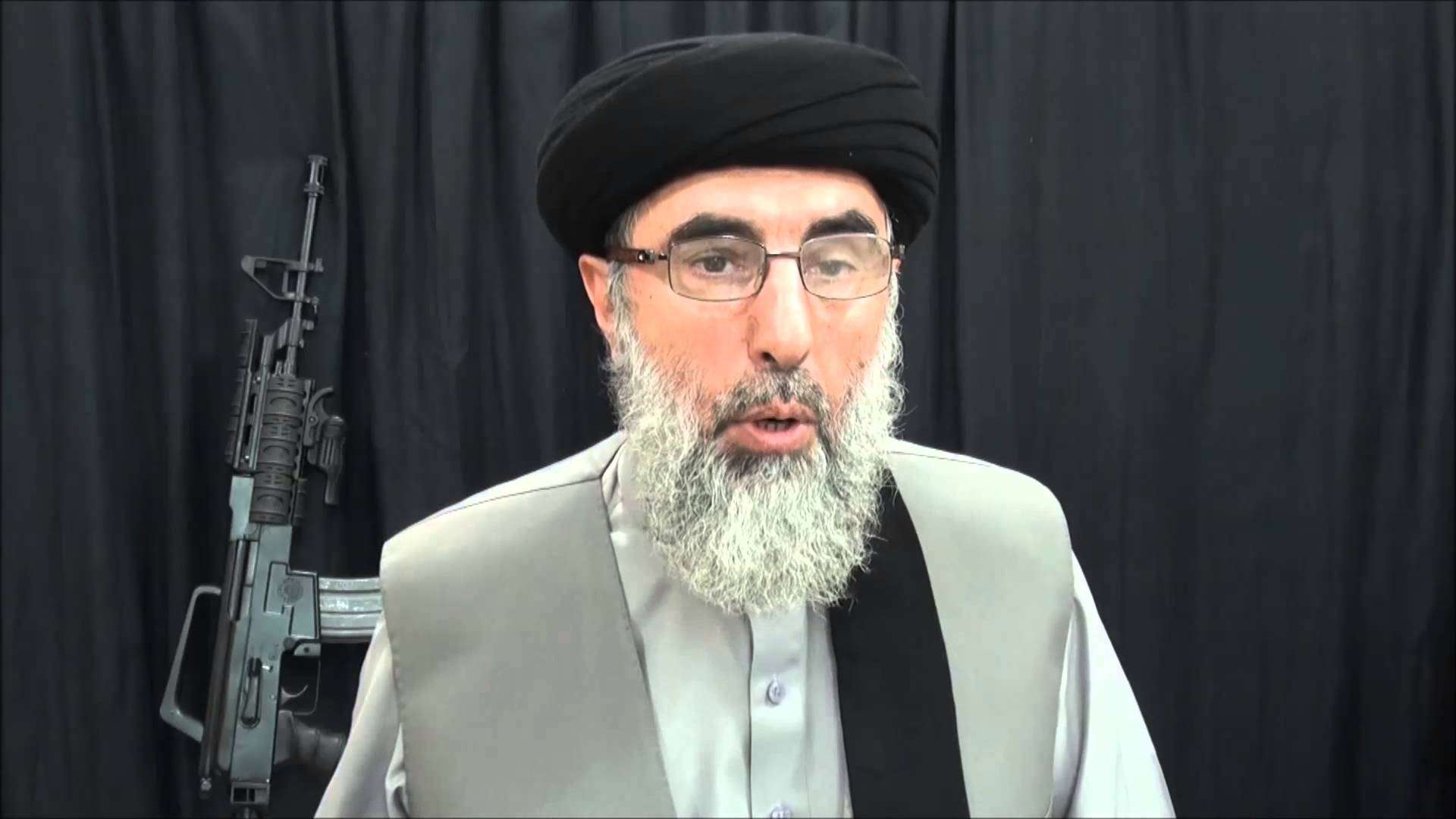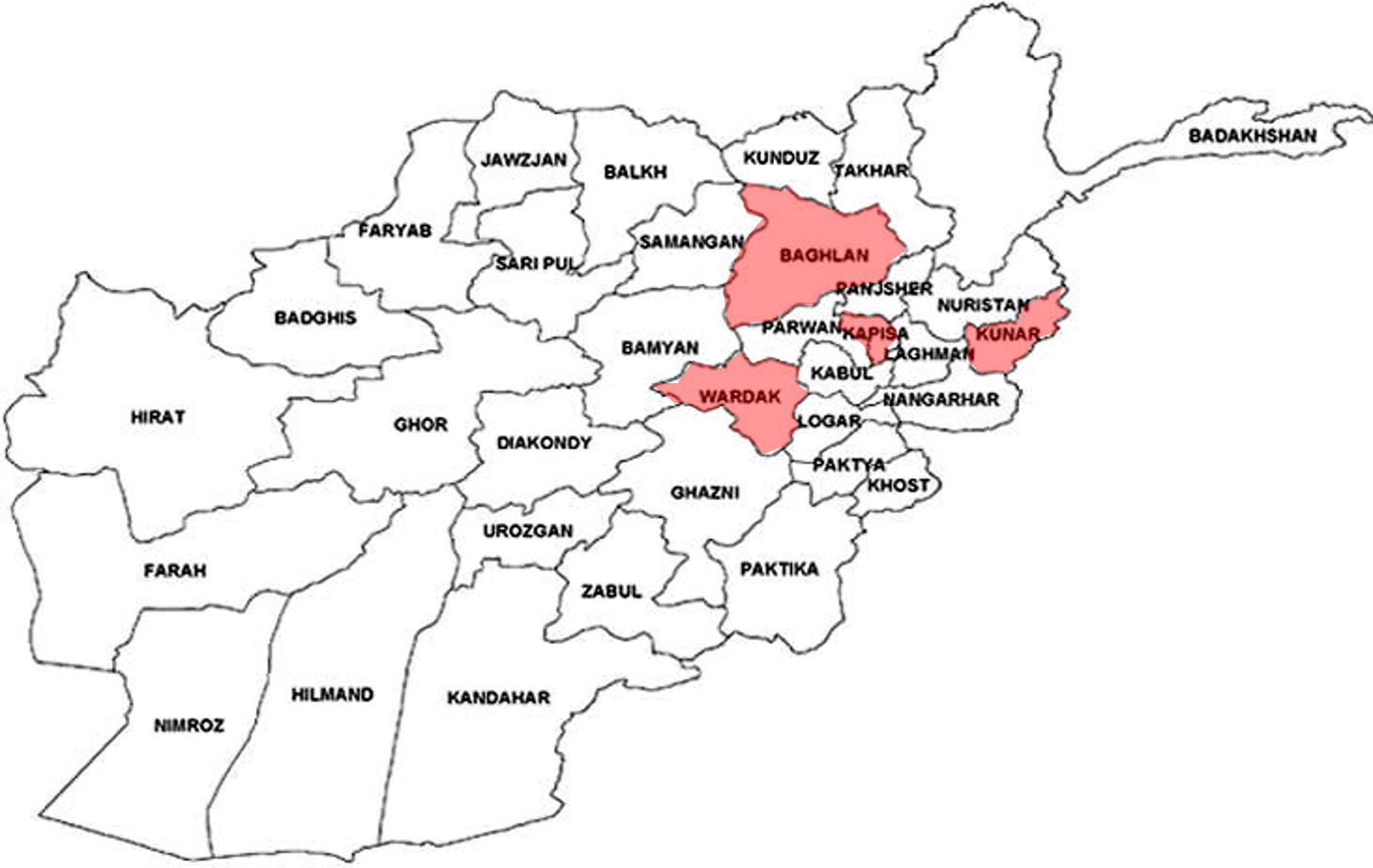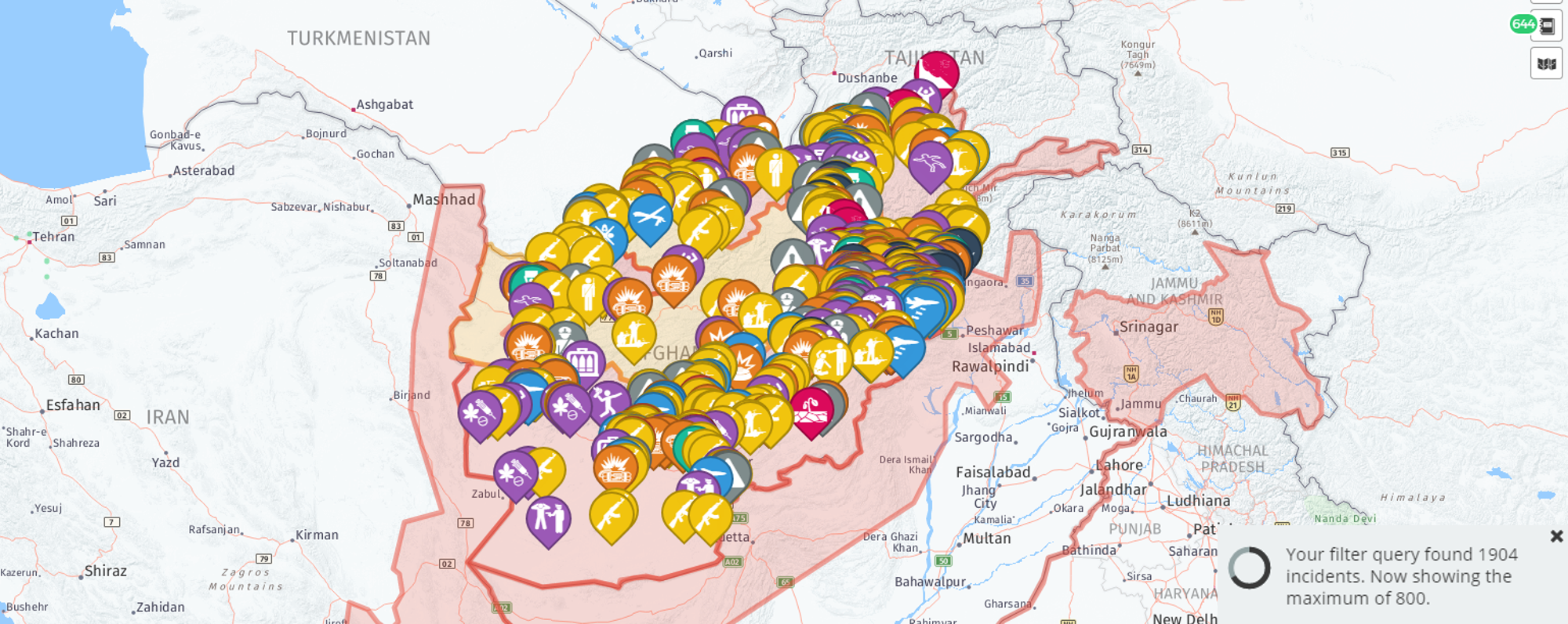Reconciliation With Gulbuddin Hekmatyar

Introduction
This article focuses on the return of Gulbuddin Hekmatyar to Afghan politics as the result of a peace treaty signed with the Afghan government. In doing so, this piece will provide a brief analysis of Hekmatyar and the Hezb-e Islamiâs past before approaching the subject of the contents of the peace settlement itself and what may come of this agreement.
The peace treaty between Predient Ghaniâs National Unity Government (NUG), Gulbuddin Hekmatyar and his Hezb-e Islami militants, signed in September 2016 represents an important part of Ghaniâs pursuit of stability in Afghanistan. However, the implementation of the treaty with such a divisive, influential and powerful man such as Hekmatyar comes with inherent difficulties. Another Mujahideen commander, Mawlawi Yunus Khales, once said of Hekmatyar that he was like âa pair of trousers which had caught fire: get rid of them and be naked or keep them and burn.[i] Whilst this quote is fast becoming an overused cliché, its way of describing the position of the NUG throughout the six year peace treaty with Hekmatyar is stunningly accurate. For the NUG, already restricted by ingrained corruption, poor resources and facing a resurgent Taliban, the deal with Hekmatyar is a step towards peace that the NUG can hardly afford to ignore. Hekmatyarâs HIG militant group, whilst less violent than in the past, still allows Hekmatyar to be a potent force in Afghanistan, regardless of whether he is in government or not. However, for many across Afghanistan, the treaty has been met with less enthusiasm. Residents of Kabul in particular still harbour memories of the events during the civil war which earned Hekmatyar the nickname âThe Butcher of Kabul.â As the treaty progresses, policy makers from both Afghanistan and abroad must consider questions not only regarding the implementation of the treaty, but also broader questions such as how can the NUG convince those it is responsible to protect to reconcile with someone with a history such as that of Hekmatyar.
Hekmatyar as a Commander of Anti-Government Opposition
Before discussing the treaty and its potential consequences, it is important to first focus on Hekmatyarâs past. Hekmatyarâs rise to significance began during the Soviet invasion of Afghanistan, where he formed the Hezb-e Islami Mujahideen group. After the departure of Soviet forces, Hekmatyar saw a short period of time as the Prime Minister of Afghanistan in the early 1990âs. It is the fighting which preceded Hekmatyar becoming PM during the civil war that many remember him for, and where his nicknames such as âRocketyarâ and âButcher of Kabulâ originate from. Hekmatyarâs Mujahideen fought other Mujahideen factions around Kabul during the civil war, launching numerous rocket and artillery strikes into the city which were responsible for high civilian casualties and attracted widespread international condemnation[ii]. Hekmatyar was able to fund the HIGâs activities throughout this period and build a power base with the assistance of the Pakistani ISI. Hekmatyar was free to distribute the assistance to other Mujahideen commanders as he pleased, buying their support and loyalty. However, the infighting amongst the Mujahideen factions weakened them, and left the door open to the Taliban. As the Taliban gained power and influence in the area, Pakistani support for groups such as Hekmatyars HIG dried up. Hekmatyarâs decline on the battlefield was finalised when the Taliban took over vast swathes of the country, and Hekmatyar was forced to flee to Iran.
Hekmatyar did not stay in Iran for very long and was forced to leave Iran as a result of pressure placed on the Iranians by the USA and the then Afghan President Kharzai due to his refusal to accept the government formed during the 2001 Bonn agreement. Hekmatyar then moved to Pakistan where he already had a significant following amongst Pashtun militants along the Pakistan-Afghan border who had previously fought under him. From Pakistan, Hekmatyar was able to orchestrate the increase in the violence of the HIGâs insurgency in 2008 against ISAF and Kharzaiâs government, with the HIG claiming responsibility for the assassination attempt on Kharzai in April 2008.[iii] Throughout this period, HIG was able to further cement their position as a key player in Afghanistan through the use of their bases in the Swat Valley and the North and South Waziristan Tribal Agencies on the Pakistani side of the border. Despite the history of conflict between government and the HIG, the Afghan government was still keen to bring Hekmatyar into some form of negotiation, where they could form a peace settlement but this was never going to be straight forward.
Hekmatyarâs Hezb-e Islami
As the Taliban became the most powerful anti-government group in the country, contrary to the claims of the HIG, the HIG saw a steady decline in the amount of resources they received from Pakistanâs ISI. The steady decline of the HIG was highlighted by the loss of Kapisa, Baghlan, Wardak and Kunar to Taliban influence. As a result, the militant wing of the HIG became largely insignificant on the battlefields of Afghanistan, lacking funding, supplies and reinforcement. However, Hezb-e Islami continues to exert its influence, as it is an awkward hybrid of a political and military movement.

Locations of Kapisa, Baghlan, Wardak and Kunar Provinces.
The political arm of the HIG has been part of Afghan politics for quite some time without Hekmatyar, but still, like the militant arm of the HIG it swears Hekmatyar as its legitimate commander. Since the 2001 Bonn agreements, the HIG have steadily become one of the largest political parties in Afghan politics despite Hekmatyar and the militant part of the HIG continuing its fight against the government. The HIG political arm is further subdivided, but the largest and most influential one is headed by Abdul Hadi Arghandiwal, a former commander within Hekmatyarâs forces. It is also worth noting here that the political arm of the HIG has been more pragmatic regarding policies, and observers suggest that the HIG politicians are more willing to cede over political issues if it allows them to retain their position of power. This in itself presents a potential problem as Hekmatyar, known for his fiery rhetoric and accusatory statements, is incorporated into a much more moderated political environment.
HIG finds itself in a somewhat unique position, in that part of the group was actively fighting the government as part of the insurgency and the other part of the group was an important part of that same government. Some have argued that this cleft within the HIG reflects a strategy of Hekmatyar in which he has assets on both sides of the battle lines. However, Hekmatyarâs rhetoric suggests otherwise, as he frequently has criticised the government’s legitimacy due to its connections with foreign forces.[iv]
The Peace Settlement
The peace settlement agreed upon between Hekmatyar and the NUG is somewhat extensive, yet clearly defined.[v] Perhaps the most contentious issue being that of foreign troops on Afghan soil. Initially, Hekmatyar saw this as a condition of any peace agreement and seemed as if he would staunchly stick to his conviction. However, recently Hekmatyar has relaxed his position regarding foreign troops, and rather than seeing it as a condition to enter peace talks, he currently sees the departure of foreign troops as a goal. Whilst the rhetoric of Hekmatyar towards foreign forces is often openly hostile, in many ways Hekmatyar also provides a legitimate escape route for foreign forces in Afghanistan. Since the end of NATO combat operations in 2014, NATO forces are still stationed across Afghanistan as advisers and in support roles. Since 2014, Hekmatyarâs insistence that foreign forces must leave Afghanistan may be interpreted by western military officials and policy makers alike as a potential politically acceptable exit strategy.
The rest of the agreement is largely focussed on bringing the fighters of the HIG into the Afghan armed forces and ensuring that Hekmatyar himself does not lose face amongst his followers. Whilst the image of any politician is important, it has been critical to Hekmatyar as much of his fame comes from his personality and his charisma. The importance of maintaining face during the negotiations has been reflected by the amount of significance placed on seemingly minor issues, such as the nature of the welcome ceremony in Kabul. Other key parts of the deal have focused on the release of political prisoners and getting Hekmatyar taken off the UN official sanctions list, which has been achieved[vi].
Likely Consequences of Reconciliation with Hekmatyar
Despite widespread international support for the peace treaty and the subsequent return of Hekmatyar to Afghan politics, many within Afghanistan and some from outside[vii] are less positive. Citizens of Kabul in particular still remember the events which earned Hekmatyar the nickname of âThe Butcher of Kabulâ and emotions are evidently mixed. In May 2017, resistance to Hekmatyarâs resurgence made headlines when a petition was presented to the UN Assistance Mission in Afghanistan (UNAMA) which demanded justice for the victims of Hekmatyarâs previous alleged crimes.[viii] Whilst the UN still remains largely supportive of the deal with Hekmatyar, the petition still serves as a reminder of the ingrained mistrust many feel towards such an influential individual. Hekmatyar, whilst popular amongst all of the major ethnicities, is also known for his divisive rhetoric regarding ethnic and religious differences in Afghanistan. For example, Hekmatyar has claimed that Iran is responsible for the spreading of Shiism across Afghanistan and has supported the Shia Hazaras. Conversely, Hekmatyar has also declared his support for the Shia Houthis fighting against Saudi Arabia, leaving many confused as to his stance towards Shia Muslims. Hekmatyarâs Pashtun origins have led some to believe that Ghani, also Pashtun, is attempting to increase the Pashtun power base in politics.[ix] However, it is also likely that Ghani sees the deal as a way of dividing the largely Pashtun opposition to his government. Lastly, by bringing the charismatic Hekmatyar into politics, Ghani may potentially be able to use some of the former Mujahideen commandersâ influence as leverage over the increasingly powerful opposition.
Within Afghan politics, there are other factors that threaten to render the entire peace deal redundant, specifically opposition in the form of the Jamiat-e Islami Party. Ministers belonging to the group are in key positions of government and will inevitably see the arrival of Hekmatyar as a possible degradation of Jamiatâs power. In the opening political skirmishing, Hekmatyar has already accused the Chief Executive Abdullah Abdullah (a member of Jamiat) of deliberately trying to prevent the deal from being implemented. Observers also anticipate tension between Hekmatyar and the political arm of the HIG itself. The more politically pragmatic HIG has worked with Hekmatyarâs traditional rival Jamiat in the past. The hostile rhetoric emanating from Hekmatyar regarding Jamiat has the potential to undo much of the reconciliation between the two groups in politics in Hekmatyarâs absence.[x]
How much impact the peace deal will actually have is currently unclear, but it seems unlikely that it will have any immediate effects on the security situation on the ground. HIG militants were already fairly low in number and the recent Taliban offensive operations under the name of âMansouriâ has already succeeded in taking more districts from the overstretched security forces. In the long term, there is a possibility that Hekmatyarâs legitimacy as a commander amongst parts of the Pashtuns may undermine the insurgency, but with the government as weak as it is this seems unlikely for now. Furthermore, as the security situation in Afghanistan deteriorates in the face of the Taliban offensive, the USA has coined the idea of sending in more NATO troops. With the presence of foreign troops being so contentious throughout the negotiations, and Hekmatyarâs open hostility towards their presence, such an increase in troop numbers would have the potential to plunge the entire agreement into chaos, rendering it useless.
Conclusion
In summary, the treaty itself is largely symbolic and mostly focuses on bringing Hekmatyar into the political fold without undermining his legitimacy or his credentials that allowed him to become the man that he is today. Whilst the practical impact of the treaty currently seems minor, it still serves as an indicator of Ghaniâs future strategy aimed at bringing about security in war torn Afghanistan. Reconciliation and a political solution, rather than decisive military victory seem to be top of the agenda as calls for the Taliban to engage in negotiations increase. However, the treaty is currently far from secure, and Hekmatyarâs personality and numerous hostile attitudes towards the former Mujahadeen commander threaten to derail the implementation of the treaty before its effects can truly be felt.

[i]https://www.afghanistan-analysts.org/charismatic-absolutist-divisive-hekmatyar-and-the-impact-of-his-return/
[ii]http://www.nytimes.com/1992/09/06/world/up-to-2000-killed-in-kabul-last-month-red-cross-says.html
[iii]https://web.archive.org/web/20080602104444/http://www.jamestown.org/news_details.php?news_id=325
[iv]https://www.afghanistan-analysts.org/charismatic-absolutist-divisive-hekmatyar-and-the-impact-of-his-return/
[v]http://www.afghanistan-analysts.org/gulbuddin-ante-portas-again-updated/
[vi]https://www.afghanistan-analysts.org/hekmatyar-taken-off-un-sanctions-list-paving-the-way-for-his-return-and-hezb-e-islamis-reunification/
[vii]https://www.hrw.org/news/2016/09/21/afghanistan-war-crimes-suspect-comes-home
[viii]http://www.tolonews.com/afghanistan/unama-receives-petition-hizb-e-islami%E2%80%99s-hekmatyar
[ix]https://www.afghanistan-analysts.org/charismatic-absolutist-divisive-hekmatyar-and-the-impact-of-his-return/
[x]https://www.afghanistan-analysts.org/charismatic-absolutist-divisive-hekmatyar-and-the-impact-of-his-return/
